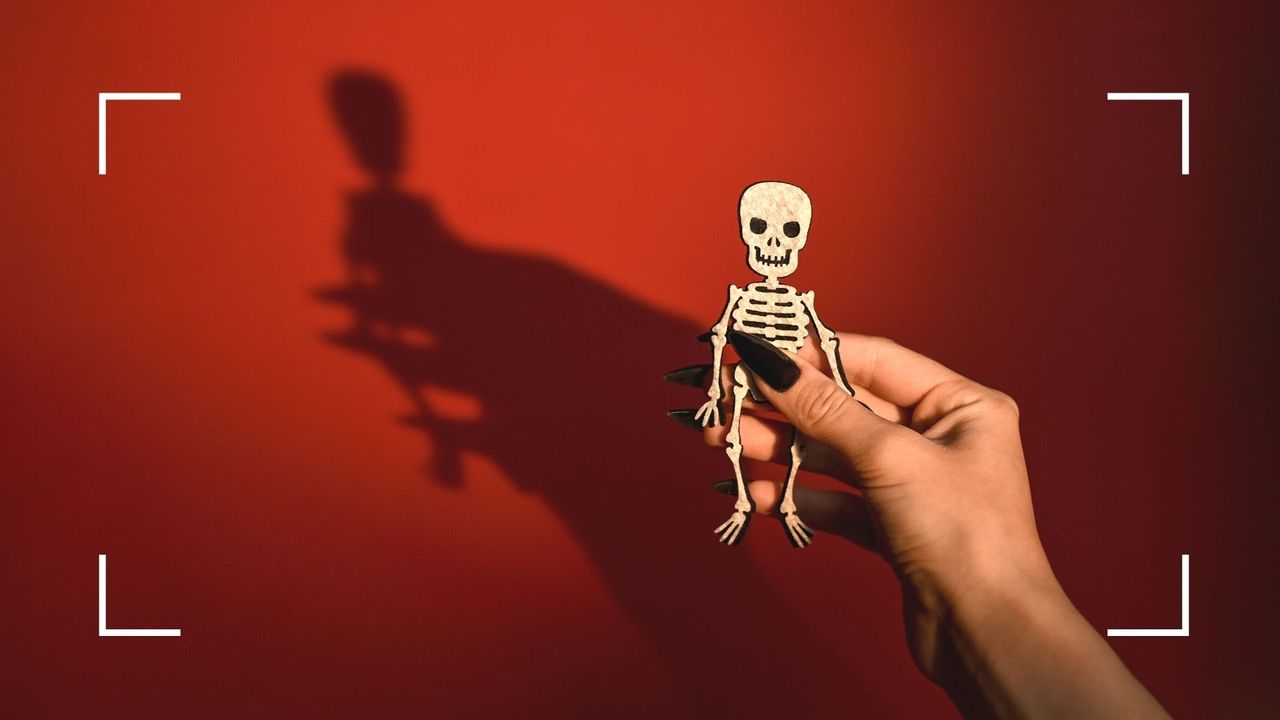Zombieing is ghosting's more cruel cousin—this is how to cope if it happens to you
Experts explain why zombieing happens and how to move forward from this toxic dating trend


Zombieing is the cruel dating trend when a former flame comes back on the scene after disappearing with no explanation—also known as 'ghosting'. It's a disrespectful and selfish way to behave, so how do you cope when it happens to you? We asked relationship experts how to navigate this tough situation.
Whether it's someone you've encountered on a relationship app, sex app, or one of the dating sites for over 50s, it never feels good to be dropped and picked up again with no warning. “It never feels good to be ghosted, but if your date returns to haunt you, then you’ve got a dating zombie on your case,” explains Lara Besbrode, dating expert and founder of introduction agency The Matchmaker UK. Zombieing is among the worst dating etiquette. Usually conducting themselves online via apps and dating sites, zombies date you, ditch you, and disappear, then resurrect from the undead, often with a left-field, non-committal message that’s as short and sharp as their exit from your life.
Author Verity Ellis had been looking for Mr Right and signed up to dating app Hinge. She matched with Matt and the early signs were promising. “His eyes were earnest, and he had a really kind look about him,” she recalls. “He seemed very together, and we were looking for the same things.” After a successful first date that ended with a passionate kiss, Verity and Matt talked constantly and communication was reciprocal. “The days leading up to our next date were filled with texts, sporadic voice messages, and romantic sermons,” she says. The couple met again, and the second date was as perfect as the first. I thought I had played it flawlessly. I texted him when I got home, thanking him for another lovely evening. He didn’t reply, so I thought maybe I’d wake up to a text the next morning.” But she didn’t. Instead, she was met with total silence. “I was completely ghosted. That abrupt lack of contact was really hurtful, and there were definitely tears of confusion.”
Utterly bewildered by the experience, Verity eventually started to make peace and move on. But then, weeks later, Matt resurfaced from nowhere with a text that read "How are things?" Verity says although she was tempted to respond, her pride prevented her from taking the bait—she didn’t want to be hurt again—so the reason for Matt’s sharp exit and unexpected reappearance remains a puzzle. Zombies seldom explain their absence when they resurface, much like those who start 'breadcrumbing', leaving victims mystified about their motives and agenda.
Why are we talking about the ‘zombieing’ dating trend now?

Besbrode points out that we're currently in ‘cuffing season’—when the urge to form romantic dalliances and bed down with someone during the cold nights takes over. “It’s a time when many singles are looking for companionship during the winter months,” she says.
A bit of nostalgia during the darker, winter nights can be the nod a zombie needs to text an ex. “Old flames are usually the easiest people to reignite a conversation with,” comments Dr Laura Vowels, therapist and principal researcher for sex therapy app Blueheart.
The Covid-19 pandemic has also perpetuated that sense of loneliness and disconnection for many of us, yet at the same time, it’s made dating much harder and more fraught. So, it’s no surprise people might go back to what—or who—they know.
What turns someone into a dating zombie?
Zombieing and ghosting normally happen without rationale, and those on the receiving end can end up questioning themselves. Maybe there’s a genuine explanation for a date disappearing into the ether, like depression or anxiety, loss or grief. If it’s someone you hardly know, chances are they won’t feel comfortable unveiling deeply personal things about themselves, instead choosing to play ghost.
Sign up for the woman&home newsletter
Sign up to our free daily email for the latest royal and entertainment news, interesting opinion, expert advice on styling and beauty trends, and no-nonsense guides to the health and wellness questions you want answered.
“There could be several reasons for this zombieing behavior, and some are more positive than others,” explains Dr Vowels. “Maybe they’ve been busy with work and other life commitments and dropped off the dating scene, or they’re simply bored and are looking for people who they know will reply to them.”
The classic zombie will tend to have a casual mindset when it comes to dating, seeking hook-ups over deeper connections. If they’ve put in the groundwork and had a good time with someone, why not revisit that when they’re back in the game after going off-radar? Lara comments that there could be triggers further back in someone’s history. “Certain romantic attachment styles and deep-rooted trauma can also play a role in exacerbating this trend,” she says. “But whether it’s a combination of factors, poor morals, or low emotional intelligence, it’s important to protect yourself first and learn to spot a dating zombie early. Know yourself and trust your gut instinct.”
The psychological fallout from toxic dating trends like zombieing
Anyone who’s been ghosted knows it’s a kick in the teeth, especially if you struggle with self-esteem and rejection. “Being ignored can perpetuate feelings of self-doubt and lack of control, and lead to feeling unworthy of attention,” Dr Laura says. “For that same person to come back as if nothing has happened can make things even more confusing.”
Zombies have a knack for making you feel tricked. Verity recalls being taken in by Matt’s caring, nurturing façade. “He made a point that he was a real advocate for women, and I really bought into the whole family man image,” she says. “He went out of his way to specify his disdain of ghosting. The hypocrisy and audacity just made me angry.”
Verity was able to chalk up her near-miss with Matt to experience—another story to add to a collection of dating anecdotes. She’s even turned them into a book—aptly called Men I’ve Dated So You Don’t Have to—which is out early in 2022.
But for other people, such cruel behavior can be incredibly damaging, according to Besbrode. “Being the victim of a zombie can easily take a psychological toll on those who have previously felt unwanted, rejected, or abandoned,” she says. “It’s a triggering experience that can lead to a negative response.”
At best, it’s deeply disheartening and discouraging for those looking for genuine love, she adds. It can take a long time and a lot of soul searching to feel ready to date again and avoid sexual anxiety after falling prey to a zombie.
You’ve encountered a Zombie—what next?
A common response to a dating zombie is to ignore their efforts to reach out to you. As the saying goes, once bitten and twice shy. But if you’re open to letting them back in, proceed with caution. Before you know it, Dr Vowels says, a second chance can turn into a tenth. “Really think about whether you want to be in a relationship that is going to be more one-sided, where you’ll be left wondering what happened each time,” she advises. “Over time it can play real tricks on your feeling of self-worth.”
Both she and Lara urge a zero-tolerance approach to dating zombies, being firm and clear about your boundaries. “I recommend taking a short break from dating apps, online dating, and dating in general,” Besbrode says. “Give yourself time to accept the scenario is not progressing, and that it’s through no fault of your own.”
Any toxic dating experience can be an opportunity for growth and self-discovery. “It’s important to continue your learning journey by keeping an eye open for future triggers, and be aware of poor or inconsistent communication,” Besbrode concludes.
And if someone is a repeat ghosting or zombieing offender, it’s probably best to nail that coffin shut for good.
woman&home thanks Lara Besbrode, dating expert and founder of introduction agency The Matchmaker UK and Dr Laura Vowels, therapist and principal researcher for sex therapy app Blueheart. Verity’s book, Men I’ve Dated So You Don’t Have To, is due to be published by Authoright in February 2022.
Allie Anderson is a freelance health journalist and editor with 12 years' experience. She writes for consumers and healthcare professionals and has a particular interest in women's and mental health.
Published in Grazia, Glamour, NetDoctor, and numerous clinical journals, Allie regularly contributes to Patient, Aesthetics, and several trade titles.
She's been editor of three publications, including a pharmacy magazine and a health charity membership magazine.
-
 Cat Deeley's barely-there smokey eye shadow look is understated glamour at its finest
Cat Deeley's barely-there smokey eye shadow look is understated glamour at its finestHer cat-eye liner brings in the perfect amount of drama
By Charlie Elizabeth Culverhouse Published
-
 Courtney Cox’s Shark vacuum coaxed me away from a lifetime of Dyson loyalty — I’ve never had cleaner floor
Courtney Cox’s Shark vacuum coaxed me away from a lifetime of Dyson loyalty — I’ve never had cleaner floorI tested the Shark PowerDetect™ Clean & Empty Cordless Vacuum and haven't looked back since. It's easily the cleverest, most powerful vacuum I've ever tested.
By Laura Honey Published